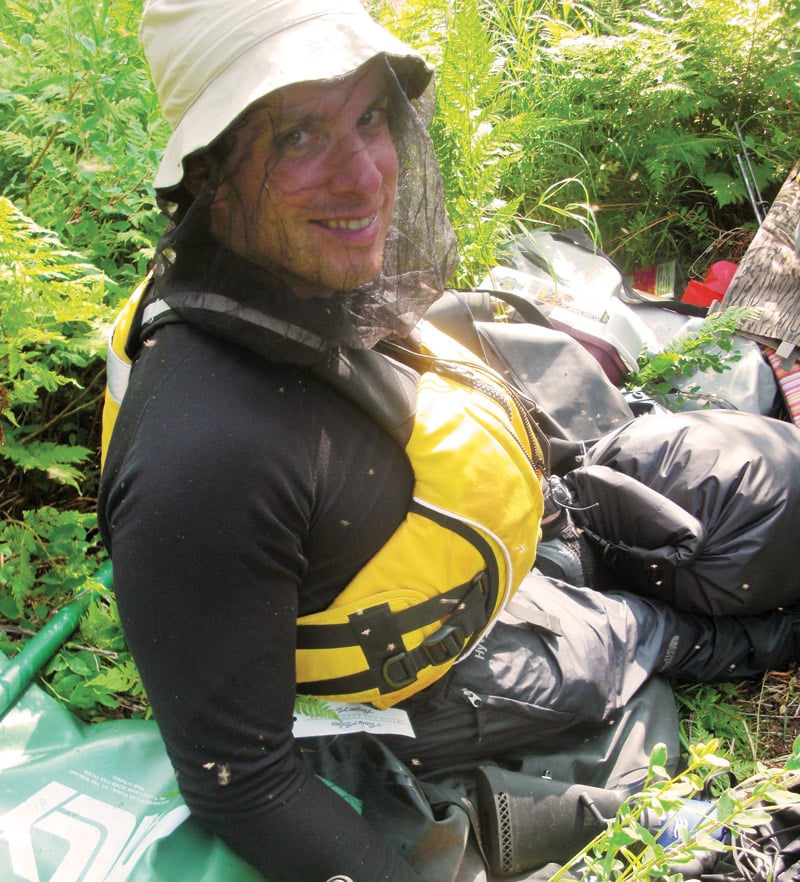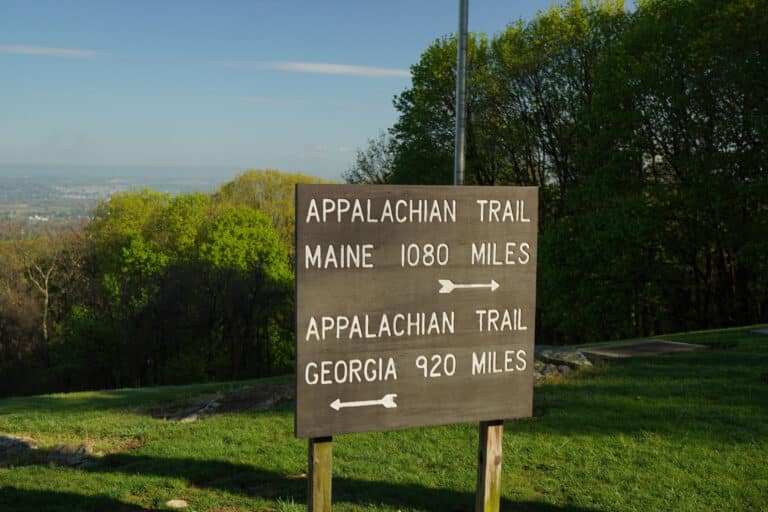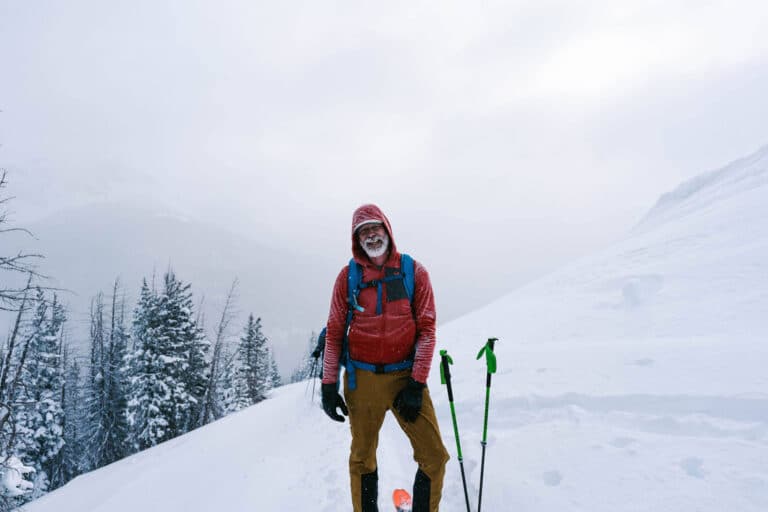Stuck in the mud.
“It’s just like delivering a placenta,” my brother-in-law — a doctor — says helpfully.
I fail to see the humor.
Dan and I are trudging through the Alaskan bush on the Canoe Portage From Hell, trying to keep phalanxes of black flies from chomping our exposed skin, while board-stiff alder branches are whipping our faces.
Moments before, our torturously slow slog ground to a halt when I planted one of my crutches in the wrong spot and leaned on it, hard. The smooth metal shaft promptly sank two feet into the state’s infamous “suck mud,” and my heart sank with it. I tugged gingerly and heard just what I expected: the distinctive slurp of the rubber tip being suctioned off and entombed in the muck. Without their tips, my custom-made titanium crutches were useless on the soft terrain, like trying to post-hole through deep snow on stilts.
So now I’m up to my elbow in the ooze and groping blindly—hence the obstetrics joke—while the flies drink deeply from their stationary target. Suddenly, my fingers brush something hard… and immediately slip off. I probe again, stretching, clawing, swatting at my winged tormentors with the other hand, which comes away blood-streaked as I smash their engorged bodies against my skin. This time my grip holds, and I finally manage to free the critical piece of equipment.
Our goal is to circumvent a difficult rapid that rips a frothy white gash through a remote river in a corner of Alaska that tourists rarely visit. Because I was born with spina bifida and am partially paralyzed from the waist down, the portage is taking a while, to put it mildly—eight hours so far, hauling gear through dense vegetation devoid of anything resembling a trail, in prime grizzly bear habitat. Visibility is only a few feet in many places, which means that surprising one of the beasts is a distinct possibility. It has taken me 20 minutes to crutch, stumble, claw, and crawl the last 20 feet, and suck mud, downed trees, grabby vines, and spiny alder stretch as far as we can see. Not to mention that we barely know where we’re going or how far it is back to the river. Discouragement begins to descend like an Alaskan squall.
Sometimes I ask myself why I do this stuff. What’s the point of a grueling portage when, even on a paved surface, a mile for me feels like five or 10 for most people? Why kayak or scuba dive, when just hauling my gear to the water can leave me exhausted? Why crank a 33-pound handcycle up punishing hills?
Today, I’m intensively reevaluating my decision to trudge waist-deep through a mini-swamp filled with rainwater, mud, and shattered branches. At any moment I expect a 900-pound grizzly to spring from the woods and swipe me dead with a plate-sized paw. Meanwhile, Dan labors somewhere behind, heroically schlepping our folding Ally canoe and the other gear that I can’t carry. Which is all of it. The thought is emasculating, and it resurrects unpleasant memories from my youth. Like sitting alone in the grass at recess while my classmates played a giddy game of kickball. Or searching lists of extracurricular activities for something validating, something I could be good at, but finding only sports.
And then there was that unforgettable blue-sky day in the fourth grade. I was playing alone in the schoolyard near a group of cute pre-pubescent girls who were chattering about secret girl stuff.
“Shhhh!” one giggled. “Someone might hear!”
“Oh, there aren’t any boys around,” another said.
“Unless you count Jeff.”
The afternoon shadows are growing longer, and still there’s neither sight nor sound of the river. At some point Dan materializes out of the woods after a scouting mission.
“I think I heard it,” he says. I look skeptical.
“No, really. About a half-mile through those trees.” He points. “See that tall spindly one? Head to the left of it.”
I squint into the bush, trying to pick out said tree from hundreds of others. I’m from Maryland, where trees along trails in public parks are smeared with blue blazes every 10 feet or so, in case you think the wide, sidewalk-like path in front of you is naturally occurring. So my navigational skills aren’t exactly Shackletonian.
“Go on,” Dan says. “I’ll get the rest of the gear.”
My mood doesn’t really improve with Dan’s discovery. A half-mile on this demonic obstacle course might as well be 20, and even if we make it to the river, who knows if we’ll have skirted the rapid? At the same time, we can’t exactly hunker down for the night in a fly-infested alder thicket. So I press on, straining to discern the course Dan pointed out through the trackless terrain. And then…
A low, indistinct sound, like white noise. But not the wind. Rushing water. Another hundred feet, and the forest gives way to dazzling, warm-hued sunlight glinting off the churn and froth of a swift but manageable current. I collapse at the river’s edge and plunge my face into the bracing, gin-clear liquid, giardia or not. I expect a wash of euphoria or exhilaration or something, but mostly there’s relief—relief for finishing the task uneaten by large carnivores, and, except for some blood donated to the bugs, largely unscathed.
Looking back conjures a keen sense of joy and personal accomplishment that went missing in the heat of the moment. At the same time, I’m reminded of something that too often gets lost in the noise: the futility of trying to be the toughest, the smartest, the most accomplished. Chase those things, it seems, and only madness awaits. For me, the wiser goal is to use whatever I’ve been given to the fullest, to play the hand I’ve been dealt rather than coveting someone else’s. There in the Alaskan bush, I like to think I took a step or three in that direction—with or without my crutch tips.








